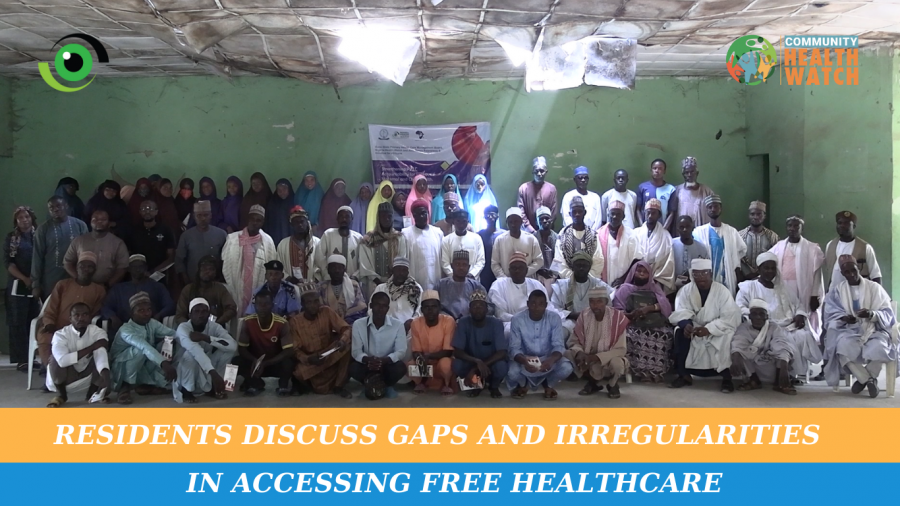
Being unfairly charged for free medication, being denied essential drugs despite being enrolled in the Kano State Contributory Healthcare Management Agency (KSCHMA) and receiving only partial treatment were some of the frustrations shared by residents of Bunkure Local Government Area (LGA) of Kano in a recent town hall meeting organised by Akin Savvy Awareness and Initiative for Africans.
At least two residents, Hauwau Ahmad Shamaki and Nuhu Shu’aibu, reported being charged for services meant to be free “we are charged for hand card and drugs which we were supposed to be free.”
The townhall meeting, held with the aim to discuss some of the critical issues affecting Primary Healthcare Centres (PHCs) in Kano, called for accountability to improve quality healthcare service including maternal and child health outcomes.
On her part, Amira Alhassan, another resident, said “we are often treated [harshly] by the healthcare providers whenever we visit the health facilities.”
Abubakar Jibril, a Hisbah representative, shared his frustration over being denied medication despite being a registered KSCHMA beneficiary, “anytime I go to the health facility, I was always referred to the pharmacy to buy drugs on the excuse of not being available.”
In addition, despite PHCs serving as focal facilities under the Basic Health Care Provision Fund (BHCPF), many community members present reported barriers such as hidden fees and inadequate medical supplies, undermining service effectiveness.
During the meeting, the KSCHMA outlined its commitment to enhancing healthcare accessibility. Dr Nuruddeen Sani Ibrahim, Director of Planning Services and Quality Assurance at KSCHMA, who acknowledged these concerns, attributed some irregularities to facility’s staff. He urged community members to report issues to liaison officers stationed across LGAs. He also highlighted the establishment of a monitoring committee to ensure transparency in healthcare expenditures and service provision.
The discussion shed light on systemic challenges affecting maternal and child health in Bunkure. Community members raised concerns about insufficient funding by KSCHMA, with only N450 allocated per person enrolled through the KSCHMA program per month—barely enough to cover medication costs for large households.
Binta Ado Yakasai, Bunkure LGA’s Health Educator, emphasised the importance of community feedback in strengthening healthcare services. Alhassan Umar, Chairman of The Ward Development Committee (WDC) echoed this, calling for proactive community involvement in maintaining healthcare facilities rather than waiting solely for government action.
The Nigerian government, through its Health Sector Renewal Plan (2023-2026), specifically the second pillar aims to revitalise PHCs, ensuring efficient, equitable, and high-quality healthcare delivery. However, the challenges in Bunkure reflect persistent gaps that require urgent attention.
Image credit: Nigeria Health Watch
Residents and stakeholders provided some key takeaways to strengthening community engagement and accountability. These were:
- Community members should actively report healthcare irregularities to ensure accountability.
- The government must increase funding for KSCHMA enrollees and enhance transparency in fund allocation.
- Advocacy efforts should focus on improving health facility infrastructure and access to essential medications.
“Improved healthcare accountability starts with community voices,” said Bolarinwa Akinoluwa, Executive Director of Akin Savvy Awareness and Initiative for Africans. “By leveraging the right channels, we can transform our healthcare system for better maternal and child health outcomes.”
